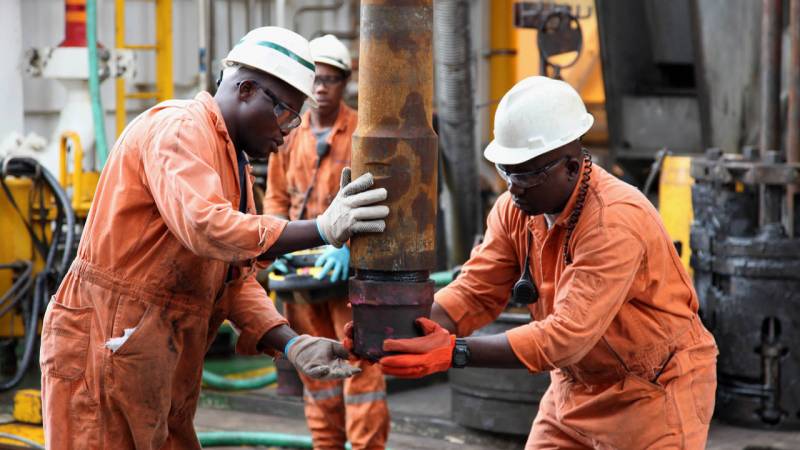The Chairman of the Nigerian chapter of the International Association of Drilling Contractors (IADC), Chuks Enwereji, has advised operators in the drilling sector to retool their skills so they can take advantage of the boom in the oil and gas sector.
Enwereji, spoke while delivering the welcome address at the association’s 2022 yearly Health Safety and Environment, HSE, Awards, and Technical Session, recently.
He explained that the fundamental drivers for determining fuel demand projections in all sectors are derived through iterative modeling, adding that prices for gas and oil in the world economic macro reflect the price levels that would be needed to stimulate sufficient investment in supply to meet projected demand.
“Analysts see this as an indicator that the world may be entering a new super circle, which would be defined by a long period of strong demand and some constraints on supply, leading to high prices for energy and other commodities,” he said.
What this translates, according to Enwereji, is the emergence of a market, jostling for “increased utilisation. How ready are we, as drilling contractors, to take advantage of the projected super circle?”
He urged IADC operators to retool their skills in order to take full advantage of the emerging scenario principally orchestrated by the Russia-Ukraine war.
He stressed that with more encouragement from the government towards the nationalisation of assets; more indigenous operators and drilling projects in their acreages would ramp up production.
“Our membership size has grown from 46 in 2021 to 55 in 2022. We have 17 active rigs as at the beginning of May 2022. More rigs are expected to commence work next month within the country,” he said.
He noted that 2022 remains promising for drilling contractors, saying that key drilling business opportunities would be highlighted at the upcoming Ghana IADC conference and exhibition through cutting edge programmes, even as the association navigates the ever-challenging energy world.
The guest speakers at the event, Ben Agadagba of Spring Rock Energy and Olanrewaju Ojo-Aromokudu of TLR Engineering, affirmed the desirability for operators in the drilling business to continuously retool their skills for maximum efficiency.
Agadagba, who spoke on the theme ‘Equipment Recertification Challenges: Building In-Country Capacity,’ agreed with Enwereji on the need for operators to step up their game. He said that consistent maintenance of working tools through recertification is critical in building confidence in the industry.
“We must ensure that all equipment are fit for purpose and should be periodically re-certified to meet the specification of operators and enhance optimal productivity,” he said.
To achieve this, Agadagba stated that operators must hire competent technicians who can professionally execute jobs according to specifications and clients’ satisfaction.
He harped on training and re-training of personnel to minimize the enormous cost associated with the technical training of drilling experts.
He also recommended the hiring of 3rd party companies for “calibration” works, saying that engaging rental companies is a strategic measure in building capacity.
“When I was in Ghana and we needed to repair a rig, the technician came from Singapore,” he added.
Ojo-Aromokudu who spoke on ‘People Development: Reducing the Talent Gap in the Oil and Gas Industry,’ explained that when a company has the right equipment without the right workers, set goals will be difficult to achieve.
He noted that the industry currently parades 20 percent of the 50 and above age bracket workforce, while the young and upcoming, ranging from age 18 to 24, constitutes 4 percent.
He stated that the gap deserves to be bridged.
Ojo-Aromokudu identified a lack of expertise and an aging workforce as prevailing challenges in the industry.
He, however, pointed out that the challenge can be located squarely in succession planning.
“Succession plans which are embedded in knowledge transfer barely exist in the industry. But where it exists, it is not robust and sustainable,” he said.
As a remedy, Ojo-Aromokudu aligned with Enwereji and Agadagba on the importance of training. He suggested that operators could explore cost-reducing digital options through online classes for personnel to address the challenge.
He called for more incentives for the workers and the availability of career growth opportunities in line with talents to minimize expert deficits.




